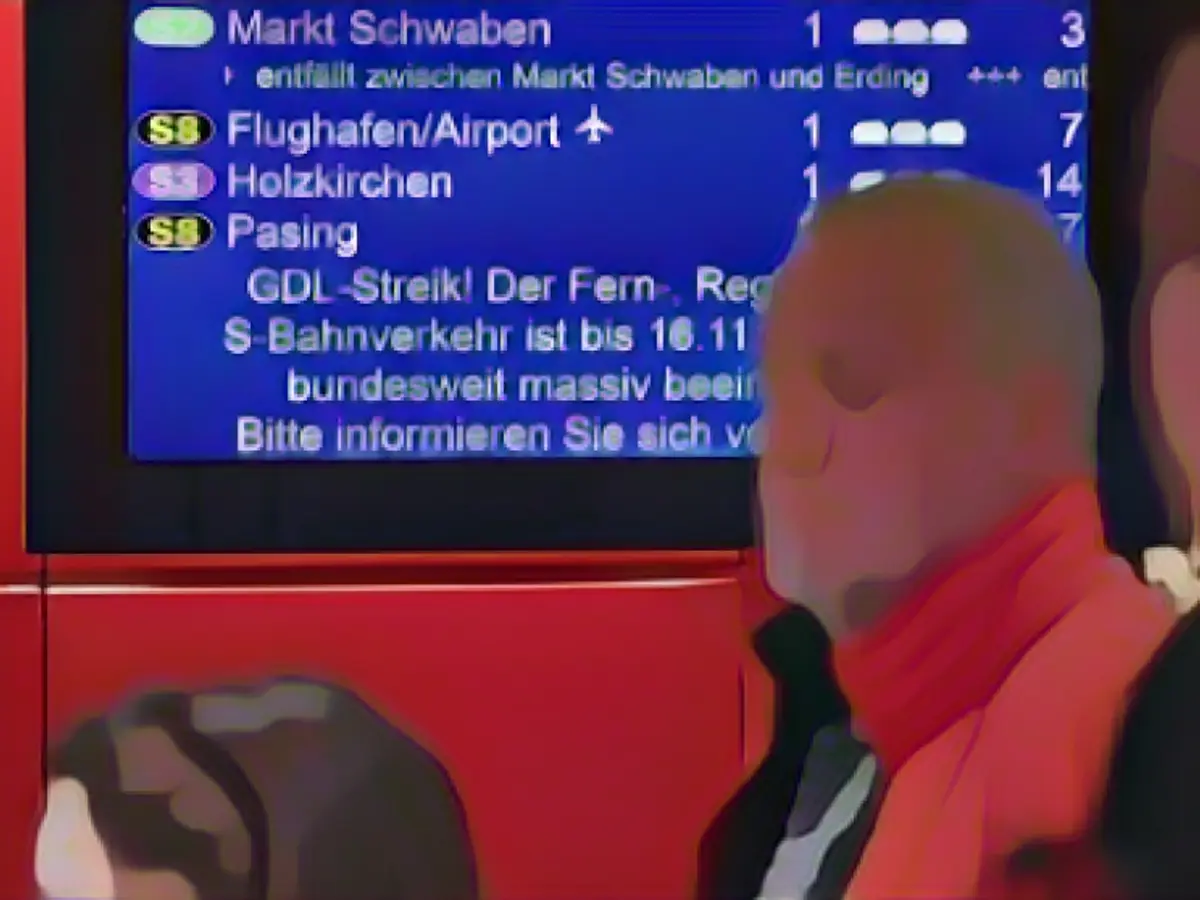Holiday Travel Chaos: German Rail Strike Continues
Since 10 PM last Wednesday, Germany's railways have been in a standstill. Passengers arriving late from their vacations had no other choice but to splurge on expensive taxi rides from the airport to their homes. The disruption continued into the following day, with travelers stranded and scrambling for alternatives.
A representative from Deutsche Bahn cited that "virtually nothing is running" due to the strike by the German Train Drivers' Union (GDL) led by Claus Weselsky. The strike has caused rail traffic to grind to a halt or at least significantly disrupt services, with an emergency timetable only applicable to select connections.
The Union's Lockdown of Basic Infrastructure - Is it Necessary?
CDU SME leader Gitta Connemann has voiced her opposition to the strike, stating that the uninvolved citizens and businesses are being held hostage by the union. The economic expert argues that GDL's actions are paralyzing parts of the country, with uninvolved citizens and businesses becoming the pawns in this small group's game.
Connemann calls for moderation with Claus Weselsky and the union. She recommends that during ongoing collective bargaining, those not involved must not be arbitrarily held responsible. She underscores the critical need for security in critical infrastructures, such as railways and airports, which should be protected from strikes at sensitive hubs. Connemann further suggests that strikes at these locations should be subject to an arbitration procedure beforehand and that a lead time of four days should be adhered to.
Citizens, especially around national holidays, require better protection against arbitrary strikes. Connemann emphasizes that Christmas, New Year, Easter, and similar occasions should not be compromised for the interests of one group. The legislators must intervene to establish regulations for fairness in labor disputes and implement a ban on strikes in the immediate vicinity of national holidays.
Addressing Labor Disputes and Strikes During Public Holidays
To protect citizens' right to peaceful holidays, several measures could be implemented. These may include:
- Legislative Amendments
- Strike Prohibition Periods: Introduce specific periods around national holidays during which strikes are prohibited or significantly restricted.
- Essential Services Exemptions: Clearly define and designate essential services that cannot be disrupted, subjecting strikes in these sectors to stricter regulations or prohibition during peak holiday periods.
- Mediation and Arbitration
- Mandatory Mediation: Implement mandatory mediation or arbitration processes for disputes that could lead to strikes, especially during holiday periods.
- Penalties for Unauthorized Strikes
- Enhanced Penalties: Increase penalties for unauthorized strikes during holiday periods to deter employers and unions from engaging in such actions.
- Union Cooperation
- Collaborative Agreements: Encourage unions to cooperate with employers and the government to avoid strikes during critical periods.
- Public Interest Clauses
- Public Interest Clauses in Collective Bargaining Agreements: Include public interest clauses in collective bargaining agreements that prioritize the continuity of essential services during holidays.
By implementing these measures, the German government could reduce the likelihood of strikes near national holidays and protect essential services, as suggested by Gitta Connemann and Florentin Connemann. It is essential to safeguard citizens' right to peaceful holidays while maintaining fairness in labor disputes.






